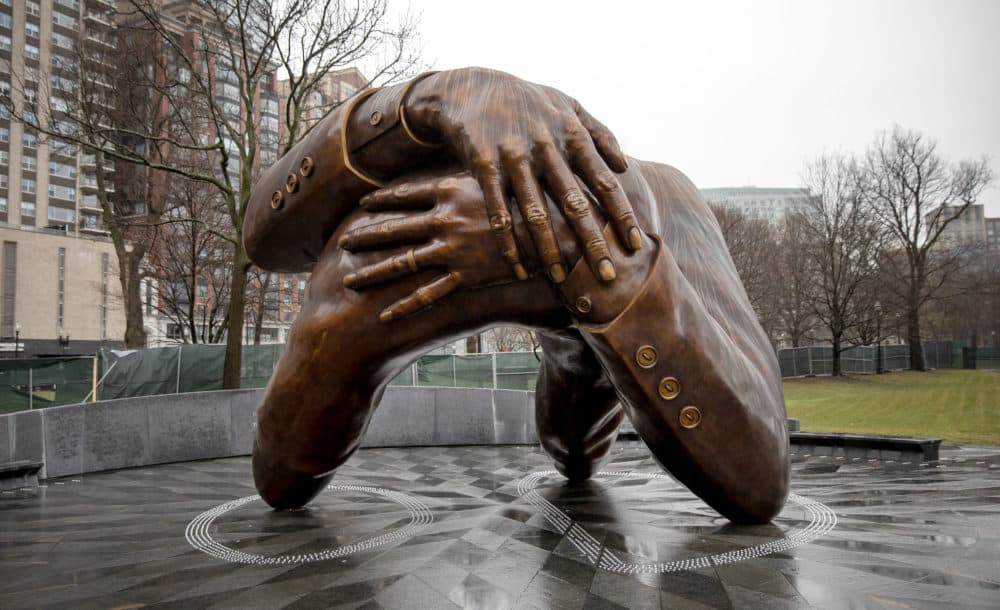Advertisement
Embrace Boston report details legacy of systemic racism and how to redress the harms it causes Black residents
Resume
The organization Embrace Boston has released a report on the history of slavery and systemic racism in Boston, and steps that can be taken to redress the inequities Black residents face.
Embrace Boston is the group behind the sculpture on Boston Common called "The Embrace," which pays tribute to Dr. Martin Luther King, Jr. and his wife, Coretta Scott King.
Former Boston City Councilor Tito Jackson is co-chair of the board of Embrace Boston. He says both Kings challenged all people to identify and repair the harms of systemic racism.
The report names seven areas of "injury" in the Black community caused by systemic racism: culture/symbols, housing, transportation, education, criminal legal systems, health and income/wealth.
Jackson told WBUR's All Things Considered host Lisa Mullins about the experience his own family had with housing discrimination.
"My family actually wanted to live in Chestnut Hill, and they actually picked out a home that cost less than the home that they ended up purchasing in Roxbury. And the reason why they couldn't get the home in Chestnut Hill was something called redlining, which is actually [how] banks and actually people in political office and other areas ... determined where someone would get a loan, hence where they would live, hence why the city of Boston looks the way that it looks demographically today."
Jackson noted the Embrace Boston report addresses many different possibilities in terms of how reparations can be carried out, from financial payments to individuals, to funding and carrying out systemic change.
"So I hope that [the report] does definitely spark a conversation," Jackson said. "I also hope that we can get to a point where we agree that these harms exist and they're persistent and they're real. And then I would also hope that we would agree that we need to fix them ... so that the city of Boston can be the best, most competitive, and actually most equitable city for all of its residents."
This segment aired on February 28, 2024.

